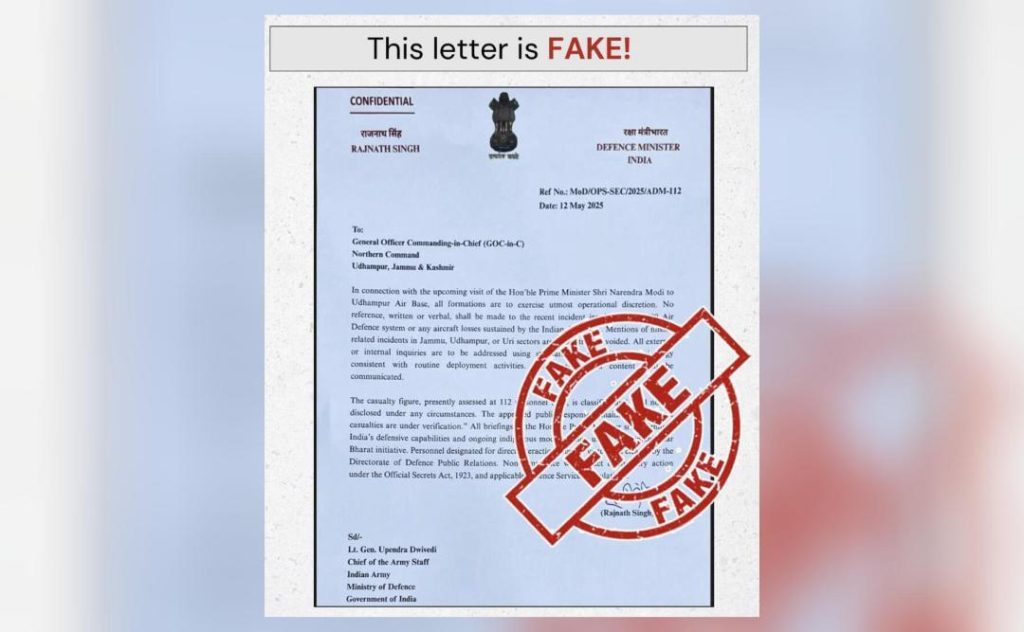
Letter Attributed to Rajnath Singh Fake, Being Spread by Pak Accounts: PIB
In today’s digital age, misinformation and fake news can spread like wildfire, causing widespread panic and confusion. In a recent development, a letter purportedly addressed by Defence Minister Rajnath Singh to the General Officer Commanding-in-Chief, Northern Command has been circulating on social media, claiming to reveal sensitive information about national security. However, the Press Information Bureau (PIB) has issued a statement debunking the letter as fake, and tracing its origin to Pakistani accounts.
The letter, which has been widely shared on social media platforms, is a clear attempt by Pakistani propagandists to spread false information and create unrest in the country. The PIB has asked citizens to rely only on official sources for accurate information and not to believe in rumors or unverified news.
The letter in question is a thoroughly researched forgery, designed to create a sense of panic and confusion among the Indian public. It claims to reveal sensitive information about national security, including the alleged presence of Pakistani troops in Indian territory and the supposed weaknesses in India’s defense systems. However, experts have pointed out several red flags, including grammatical errors, inconsistent formatting, and a lack of official stamps and seals.
The PIB has taken a strong stance against this fake news, stating that it is being spread by Pakistani accounts as part of a calculated effort to spread misinformation and undermine India’s national security. The government has asked citizens to report any instances of fake news to the authorities and to verify information through official channels before sharing it on social media.
This is not the first time that Pakistani propagandists have been caught spreading fake news about India. In recent years, there have been several instances of fake news being circulated on social media, including claims of Indian troop movements on the border, alleged ceasefire violations, and supposed diplomatic crises between the two countries.
The spread of fake news is a major challenge in today’s digital age, and it is essential that citizens take steps to verify information before sharing it on social media. In this context, the PIB’s fact-checking efforts are a welcome step, and citizens are urged to rely on official sources for accurate information.
The PIB’s statement on the fake letter attributed to Rajnath Singh is a clear warning to citizens to be vigilant and not to believe in rumors or unverified news. The government has asked citizens to report any instances of fake news to the authorities and to verify information through official channels before sharing it on social media.
In conclusion, the letter attributed to Rajnath Singh is a fake, and its spread is a clear attempt by Pakistani propagandists to spread misinformation and undermine India’s national security. Citizens are urged to rely on official sources for accurate information and to report any instances of fake news to the authorities. The PIB’s fact-checking efforts are a welcome step, and it is essential that citizens take steps to verify information before sharing it on social media.






